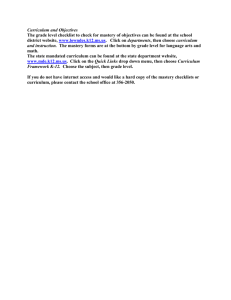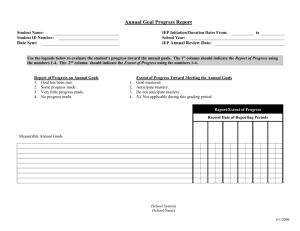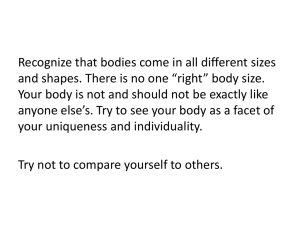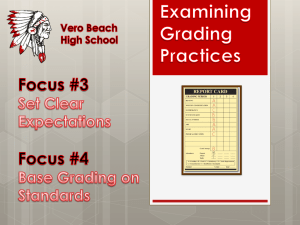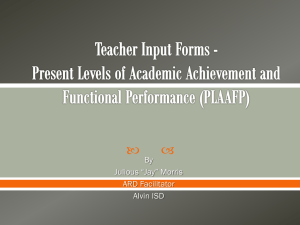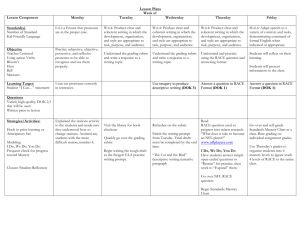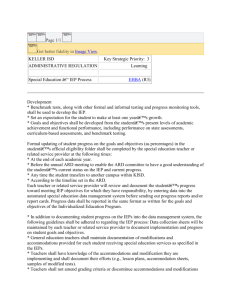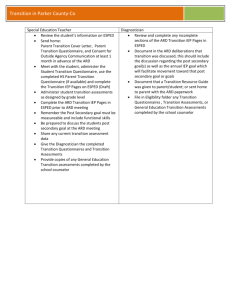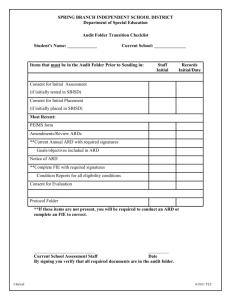Special Education Grading Policy
advertisement
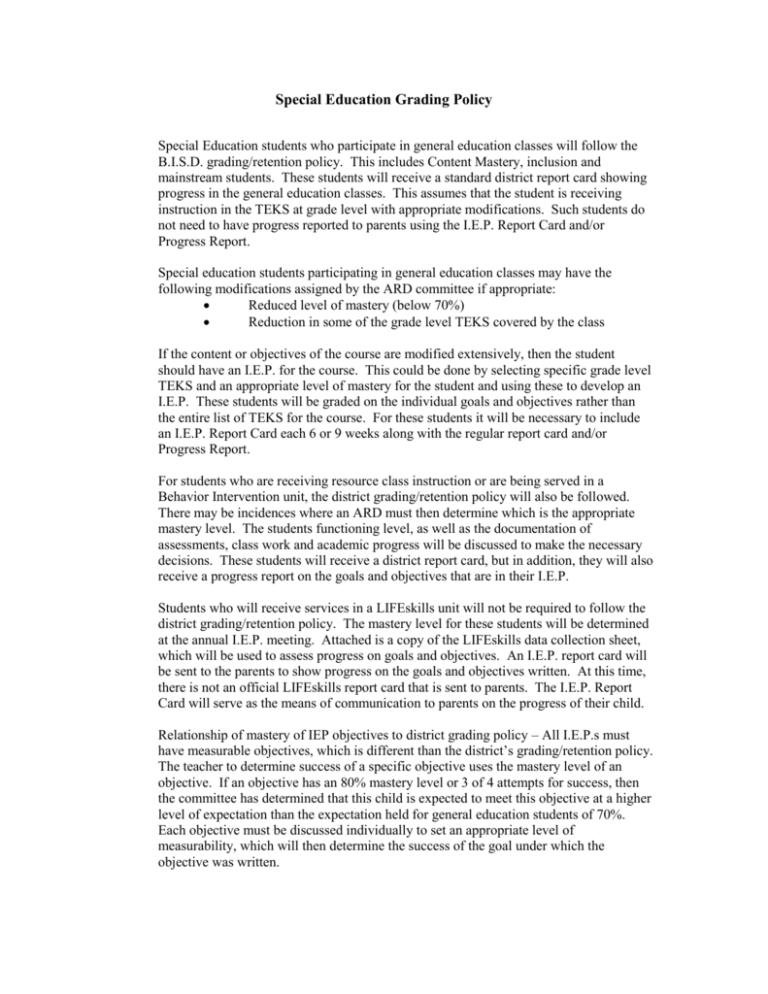
Special Education Grading Policy Special Education students who participate in general education classes will follow the B.I.S.D. grading/retention policy. This includes Content Mastery, inclusion and mainstream students. These students will receive a standard district report card showing progress in the general education classes. This assumes that the student is receiving instruction in the TEKS at grade level with appropriate modifications. Such students do not need to have progress reported to parents using the I.E.P. Report Card and/or Progress Report. Special education students participating in general education classes may have the following modifications assigned by the ARD committee if appropriate: Reduced level of mastery (below 70%) Reduction in some of the grade level TEKS covered by the class If the content or objectives of the course are modified extensively, then the student should have an I.E.P. for the course. This could be done by selecting specific grade level TEKS and an appropriate level of mastery for the student and using these to develop an I.E.P. These students will be graded on the individual goals and objectives rather than the entire list of TEKS for the course. For these students it will be necessary to include an I.E.P. Report Card each 6 or 9 weeks along with the regular report card and/or Progress Report. For students who are receiving resource class instruction or are being served in a Behavior Intervention unit, the district grading/retention policy will also be followed. There may be incidences where an ARD must then determine which is the appropriate mastery level. The students functioning level, as well as the documentation of assessments, class work and academic progress will be discussed to make the necessary decisions. These students will receive a district report card, but in addition, they will also receive a progress report on the goals and objectives that are in their I.E.P. Students who will receive services in a LIFEskills unit will not be required to follow the district grading/retention policy. The mastery level for these students will be determined at the annual I.E.P. meeting. Attached is a copy of the LIFEskills data collection sheet, which will be used to assess progress on goals and objectives. An I.E.P. report card will be sent to the parents to show progress on the goals and objectives written. At this time, there is not an official LIFEskills report card that is sent to parents. The I.E.P. Report Card will serve as the means of communication to parents on the progress of their child. Relationship of mastery of IEP objectives to district grading policy – All I.E.P.s must have measurable objectives, which is different than the district’s grading/retention policy. The teacher to determine success of a specific objective uses the mastery level of an objective. If an objective has an 80% mastery level or 3 of 4 attempts for success, then the committee has determined that this child is expected to meet this objective at a higher level of expectation than the expectation held for general education students of 70%. Each objective must be discussed individually to set an appropriate level of measurability, which will then determine the success of the goal under which the objective was written. Examples of objectives which should be considered for a mastery level of greater than 70%: Toilet training or other hygiene related objectives Behavioral objectives related to physical or verbal aggression. Since this behavior cannot be tolerated in the school it is likely that the mastery level might be 100%. The decision to promote/place/retain any special education student is an ARD committee decision. Consideration of retention for any special education student should be addressed by the ARD committee. Documentation of efforts made to help the child must be discussed along with any other information that is pertinent to making an appropriate decision. Please be reminded that at the end of every six or nine weeks, review of the students progress in both general and special education classes will help the ARD teacher make the necessary remediation or changes to help the student succeed. It is important to note that if a child is receiving services in a resource class or self contained unit and is not earning passing grades the situation should immediately be addressed by the ARD committee. Students in any special education class should be receiving instruction at their functioning level with the appropriate modifications. If a child is failing in a resource or self contained class, then the instructional teacher and ARD teacher, if different, must meet to discuss the reason for the failure. There should be little or no failure where instruction is being provided through special education. Again, the matter of promotion/placement/retention needs to be discussed at an ARD where all documentation can be discussed. It is expected that every student in special education will make progress in the general education curriculum and/or their individual goals and objectives each and every year that they are in the program. Any student who does not master most of their goals and objectives during a year and/or who has not demonstrated progress on the TAKS or an alternative assessment measure should be reviewed by the ARD committee. Options to consider might include: Request additional assessment Consider a different placement or a lower pupil teacher ratio Consider seeking alternative materials or strategies Consider requesting observation of the student by a special education supervisor, a district specialist or a consultant We have an absolute obligation to take all reasonable actions to assist special education students to make continual progress on their educational goals. This does not mean that we can guarantee a specific level of progress for any student. It does mean that we will constantly monitor and adjust our programming for a student to address any lack of progress. This should also include frequent communication with the parent.
